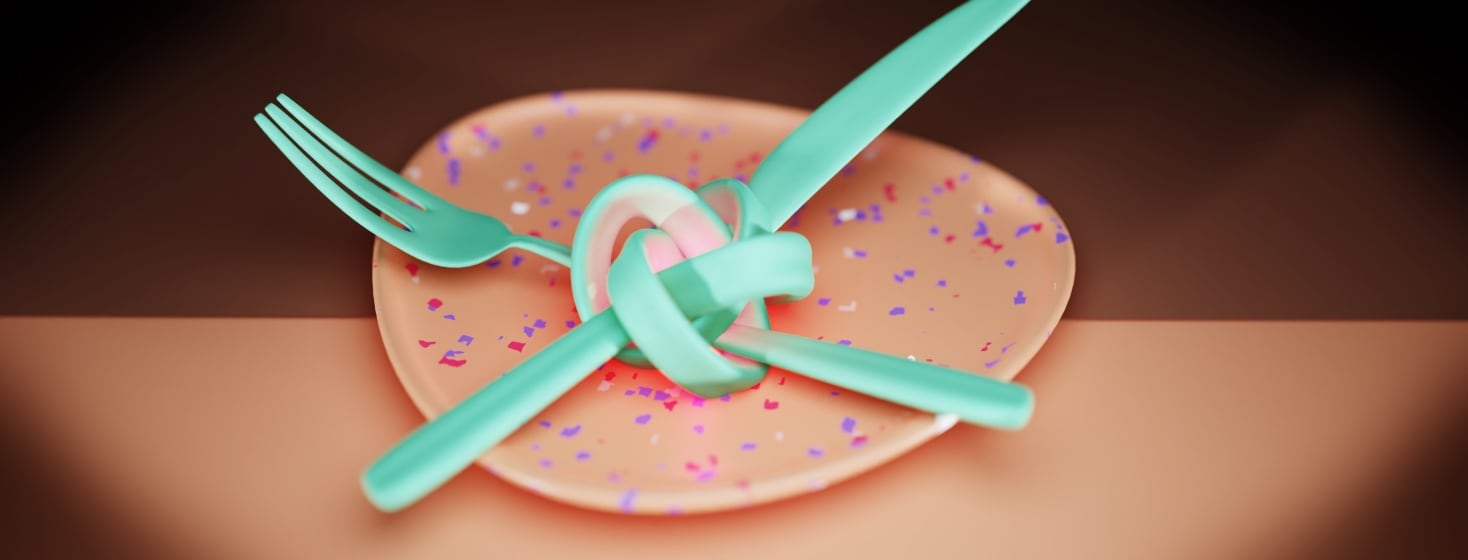Healthy Eating Can Be Hard With IBD
As someone living with Crohn's disease, I'll be the first to tell you that my relationship with food has admittedly been complicated for a long time.
There were years prior to my Crohn's diagnosis (and the correct treatment) where almost everything I ate caused excruciating pain and immediate symptoms. I was always afraid of food. Always scrutinizing my choices, wondering how the simplest or blandest of things could have destroyed my stomach in just one shot.
Eventually, I found some solace in living what I call "that carb life."
Unhealthy eating with Crohn's
Carbohydrates were safe foods for me – pasta, breads, crackers, rice – anything bland and soft was a huge bonus. I could eat without spending hours doubled over or racing for the restroom. It was pretty ideal, honestly.
But, between the lack of healthy foods, being on and off steroids, and some other changes I experienced, I found myself moving from previously underweight to decently overweight. In the past, I’ve written about my experiences as a plus-size Crohn’s disease patient, and today I want to expand on that.
How to eat healthy with Crohn's disease?
Recently, I decided to take a little more control (read: restriction) over what and how I was consuming. Rather than fill my stomach with carbs and things that maybe offered me comfort and safety, I began paying attention to eating only when I was really hungry.
I also decided that while my Crohn's disease is still in remission, this would be a good time to reintroduce more fruits and vegetables into my regular routine.
It's not that I don’t enjoy these foods. There are actually both fruits and vegetables I like very much. It’s also not that I’m afraid of them, per se. It's more that I know how my body often responds to foods like these.
In the past, I've struggled with diarrhea, stomach pains, and more frequent bowel movements in response to healthy foods like lettuce, broccoli, and cauliflower. I wanted to incorporate them into my diet, but I knew I had to start slow.
Fruits and vegetables wreak havoc on my gut
And even then, with a slow and steady approach, the first few weeks were really difficult. I was in the bathroom more often than usual, struggling with both diarrhea and bloating, and feeling uncomfortable.
I felt so frustrated by this. I knew mentally that I should be eating healthier, but my body was making it extremely difficult. I felt better physically when I stuck with safe foods, but safe foods have also kept me overweight for a while now.
Balancing a sensitive gut and healthy eating
This attempt I made – it reminded me how delicate my gut is, how long it took me to find foods that were comfortable and safe and caused no symptoms, and how long it's been since I've tried to go back to the route of healthy since finding remission.
The challenges have continued, and I'm still trying to strike a balance - between eating "better" for my weight and energy levels and "safer" for my IBD and intestinal preferences.
Overall, I have felt for a long time like eating what has traditionally been considered healthy - fruits and vegetables, heavy on the greens and roughage - is incredibly difficult with IBD. But I'm also cautiously optimistic that I can find some sort of middle ground in between the two.

Join the conversation